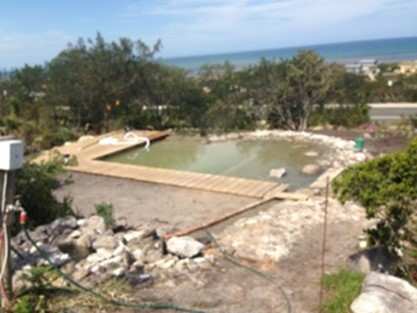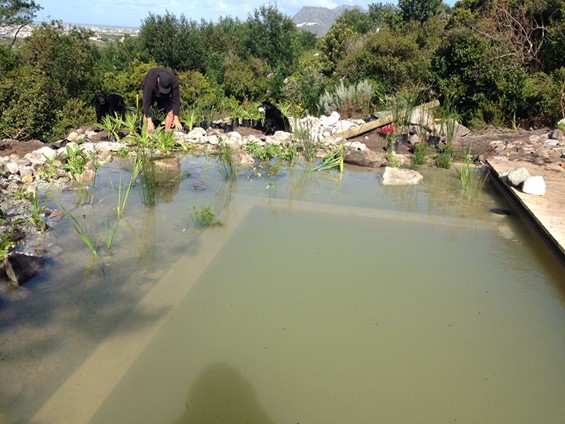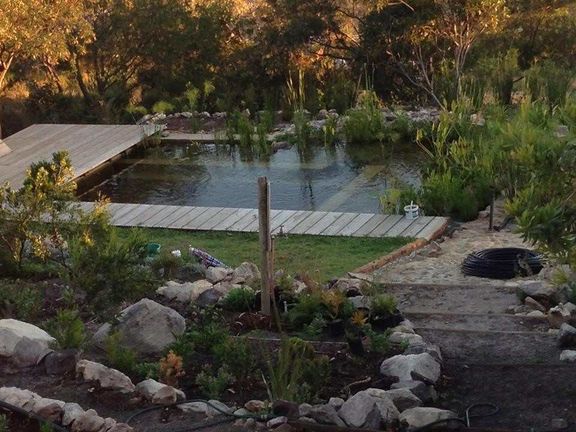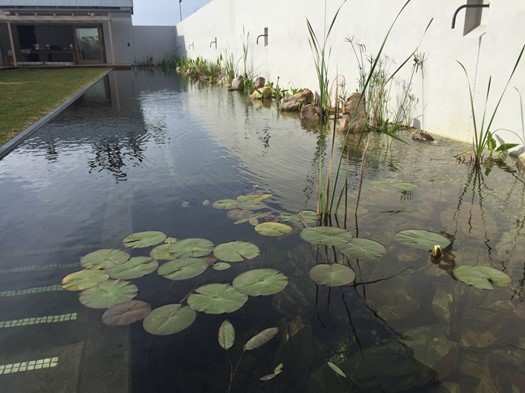Grant and two oartners run a company, based in Pringle Bay, called Deep Blue Aquatic Systems. They are aquaculture specialists and their core focus is on the design, manufacturing and installation of aquaculture and live-holding systems for both fresh and marine species . To the man on the street, they are experts you call on if you want to farm fish or other edible species that live in water. For more than ten years they have been involved in the cultivation of abalone, crayfish, tilapia, salmon, trout and cob and their business extends well beyond the borders of South Africa.

The aquaculture industry, though in its infancy in South Africa [less so in other parts of the world], is going to become of critical importance in the years to come. Natural fish stocks are dwindling fast and the world’s population is ever expanding. Food stability will be one of the greatest challenges of the future and fish farming will inevitably become more and more vital.
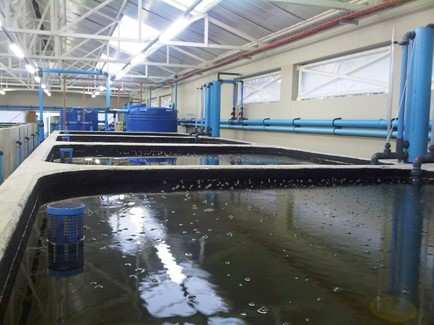

Recently, Grant has become interested in the design and installation of natural swimming pools, fresh water pools that can support plant and animal life but double as swimming pools that do not rely on the use of chemicals to keep the water clean and algae-free. The pools are divided into two sections, the swimming section and the plant or bio-filter section and it is important that the plant section is big enough in relation to the swimming pool section to ensure the cleanliness of the water through adequate filtration. Water is constantly circulating from the one to the other – a small pump runs continuously. The roots of the plants and the bacteria filter the water as it passes through a deep bed of stones to the pipes below, from which it is pumped back to the swimming pool section.
It takes a good two years before the pool functions optimally as the root systems of the plants need to develop and spread and the bacteria need to multiply. It is the roots and the bacteria that compete with algae for the nutrients in the water. As time goes on, the pool will need less and less maintenance, though it is important to regularly remove dead plant matter from the bio-filter as this will decompose and “feed” any algae present in the water. It is also necessary to have skimmers for the removal of floating debris and the swimming pool will need to be vacuumed periodically to remove any settled debris. The water needs to be sufficiently oxygenated to support plant and animal life and this can be achieved through including oxygenating plants in the bio-filter and by aerating the water, through venturi systems or splashing water.
Grant’s first natural pool was built in Betty’s Bay and below is a photo-tour of the process.


biofilter will later be filled with fine stone, in which the plants will be grown. The concrete needs
to set for a couple more weeks..

